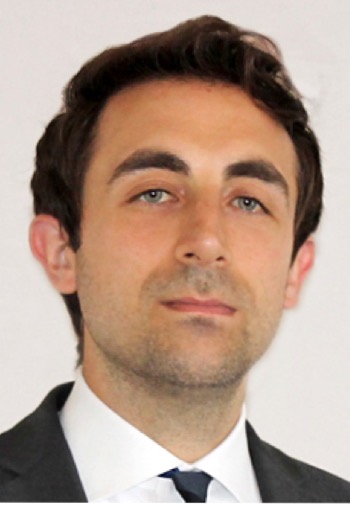Studying at the University of Verona
Here you can find information on the organisational aspects of the Programme, lecture timetables, learning activities and useful contact details for your time at the University, from enrolment to graduation.
Academic calendar
The academic calendar shows the deadlines and scheduled events that are relevant to students, teaching and technical-administrative staff of the University. Public holidays and University closures are also indicated. The academic year normally begins on 1 October each year and ends on 30 September of the following year.
Course calendar
The Academic Calendar sets out the degree programme lecture and exam timetables, as well as the relevant university closure dates..
| Period | From | To |
|---|---|---|
| 1° periodo di lezioni - 12 CFU | Sep 23, 2019 | Dec 14, 2019 |
| 1° periodo di lezioni | Sep 30, 2019 | Dec 14, 2019 |
| Periodo riservato ad eventuali recuperi di lezioni - dicembre 2019 | Dec 16, 2019 | Dec 17, 2019 |
| 2° periodo di lezioni - febbraio/aprile 2020 - 12 CFU | Feb 6, 2020 | Apr 6, 2020 |
| 2° periodo di lezioni - febbraio/aprile 2020 | Feb 10, 2020 | Apr 6, 2020 |
| 2° periodo di lezioni - aprile/maggio 2020 | Apr 15, 2020 | May 7, 2020 |
| 2° periodo di lezioni - aprile/maggio 2020 - 12 CFU | Apr 15, 2020 | May 12, 2020 |
| Periodo riservato ad eventuali recuperi di lezioni - maggio 2020 | May 8, 2020 | May 9, 2020 |
| Session | From | To |
|---|---|---|
| Sessione straordinaria - studenti f.c. e insegnamenti del 1° periodo | Dec 18, 2019 | Dec 23, 2019 |
| Sessione invernale - 1° appello | Jan 8, 2020 | Jan 17, 2020 |
| Sessione invernale - 2° appello | Jan 28, 2020 | Feb 6, 2020 |
| Sessione straordinaria - studenti f.c. - aprile 2020 | Apr 7, 2020 | Apr 9, 2020 |
| Sessione estiva - 3 appelli | May 12, 2020 | Jul 25, 2020 |
| Sessione autunnale - 1° appello | Aug 26, 2020 | Sep 5, 2020 |
| Sessione autunnale - 2° appello | Sep 21, 2020 | Sep 30, 2020 |
| Session | From | To |
|---|---|---|
| Sessione autunnale - ottobre 2019 | Oct 21, 2019 | Oct 22, 2019 |
| Sessione invernale - febbraio 2020 | Feb 7, 2020 | Feb 7, 2020 |
| Sessione invernale - marzo 2020 | Mar 18, 2020 | Mar 20, 2020 |
| Sessione estiva - giugno 2020 | Jun 25, 2020 | Jun 26, 2020 |
| Period | From | To |
|---|---|---|
| Festa di Ognissanti | Nov 1, 2019 | Nov 1, 2019 |
| Festa dell'Immacolata | Dec 8, 2019 | Dec 8, 2019 |
| Vacanze di Natale | Dec 24, 2019 | Jan 6, 2020 |
| Vacanze di Pasqua | Apr 10, 2020 | Apr 14, 2020 |
| Festa della Liberazione | Apr 25, 2020 | Apr 25, 2020 |
| Festa del lavoro | May 1, 2020 | May 1, 2020 |
| Festa del Santo Patrono | May 21, 2020 | May 21, 2020 |
| Festa della Repubblica | Jun 2, 2020 | Jun 2, 2020 |
Exam calendar
Exam dates and rounds are managed by the relevant Law Teaching and Student Services Unit.
To view all the exam sessions available, please use the Exam dashboard on ESSE3.
If you forgot your login details or have problems logging in, please contact the relevant IT HelpDesk, or check the login details recovery web page.
Should you have any doubts or questions, please check the Enrollment FAQs
Academic staff
 bernardo.calabrese@univr.it
bernardo.calabrese@univr.it
 andrea.favaro@univr.it
andrea.favaro@univr.it
 roberto.flor@univr.it
roberto.flor@univr.it
 stefano.gatti@univr.it
stefano.gatti@univr.it
 giorgia.guerra@univr.it
giorgia.guerra@univr.it
 rita.maggi@univr.it
rita.maggi@univr.it
 martina.menon@univr.it
martina.menon@univr.it
 mariafederica.merotto@univr.it
mariafederica.merotto@univr.it
 giuliano.stasio@univr.it
giuliano.stasio@univr.it
 rosamaria.vadala@univr.it
rosamaria.vadala@univr.it
 isabella.zambotto@univr.it
isabella.zambotto@univr.it
Study Plan
The Study Plan includes all modules, teaching and learning activities that each student will need to undertake during their time at the University.
Please select your Study Plan based on your enrollment year.
1° Year
| Modules | Credits | TAF | SSD |
|---|
Roman Law Institutions
History of Medieval and Modern Law
2° Year activated in the A.Y. 2020/2021
| Modules | Credits | TAF | SSD |
|---|
1 module to be chosen between the following1 module to be chosen between the following1 module to be chosen between the following3° Year activated in the A.Y. 2021/2022
| Modules | Credits | TAF | SSD |
|---|
4° Year activated in the A.Y. 2022/2023
| Modules | Credits | TAF | SSD |
|---|
1 module to be chosen between the following5° Year activated in the A.Y. 2023/2024
| Modules | Credits | TAF | SSD |
|---|
1 module to be chosen between the following| Modules | Credits | TAF | SSD |
|---|
Roman Law Institutions
History of Medieval and Modern Law
| Modules | Credits | TAF | SSD |
|---|
1 module to be chosen between the following1 module to be chosen between the following1 module to be chosen between the following| Modules | Credits | TAF | SSD |
|---|
| Modules | Credits | TAF | SSD |
|---|
1 module to be chosen between the following| Modules | Credits | TAF | SSD |
|---|
1 module to be chosen between the following| Modules | Credits | TAF | SSD |
|---|
5 modules to be chosen among the following during the 3rd, 4th and 5th year (in detail: 1 module in the 3rd year; 1 module in the 4th year; 3 modules in the 5th year)Legend | Type of training activity (TTA)
TAF (Type of Educational Activity) All courses and activities are classified into different types of educational activities, indicated by a letter.
Type D and Type F activities
Le attività che consentono l’acquisizione dei crediti riservati alle attività formative a libera scelta dello studente (TAF D) sono le seguenti:
• Un insegnamento previsto nell’elenco delle attività formative (TAF D) allegato al piano didattico del corso di laurea Magistrale in Giurisprudenza;
• Un insegnamento attivato nei Corsi di studi afferenti al Collegio di Giurisprudenza;
• Un laboratorio didattico attivato nei Corsi di studi afferenti al Collegio di Giurisprudenza;
• Un laboratorio didattico attivato nei Corsi di studi afferenti al Dipartimento di Scienze Giuridiche;
• Un insegnamento previsto dall’Offerta Formativa di Ateneo, non impartito nell’ambito dei corsi di studi afferenti al Collegio di Giurisprudenza: il riconoscimento dei crediti acquisiti sarà subordinato alla preventiva presentazione di coerenti programmi formativi valutati dalla Commissione istruttoria per la didattica e approvati dal Collegio didattico.
• Attività formative organizzate dai singoli docenti del Collegio di Giurisprudenza o del Dipartimento di Scienze Giuridiche: previa approvazione del Collegio ad esse verrà attribuito, dopo un’apposita verifica, un credito per ogni 6 ore di frequenza obbligatoria;
• Attività formative che implicano la partecipazione a convegni o seminari organizzati sotto il “logo” del Dipartimento di Scienze Giuridiche o dell’Ateneo: devono essere preventivamente approvate dal Collegio di Giurisprudenza indicando un docente di riferimento del Collegio di Giurisprudenza ovvero del Dipartimento di Scienze Giuridiche. Un credito per ogni giornata di convegno o di seminario si acquisisce dopo apposita verifica che dimostri l’avvenuta fruizione culturale del tema del convegno o del seminario.
Le attività che consentono l’acquisizione dei crediti riservati alle ulteriori attività formative (TAF F) sono le seguenti:
• Informatica (3 cfu)
• Stage;
• Un laboratorio didattico attivato nei Corsi di studi afferenti al Collegio di Giurisprudenza;
• Un laboratorio didattico attivato nei Corsi di studi afferenti al Dipartimento di Scienze Giuridiche.
Al link https://www.univr.it/it/i-nostri-servizi/segreterie-studenti/giurisprudenza#categdoc_7103 la modulistica per l'inserimento di attività non selezionabili in autonomia dallo studente in sede di compilazione del piano degli studi.
| years | Modules | TAF | Teacher |
|---|---|---|---|
| 4° 5° | THE PRESENT AND THE FUTURE OF THE PLANET. ECOLOGY, SUSTAINABILITY, POLICIES | D |
Laura Calafà
(Coordinator)
|
| 4° 5° | Univero’ 2019 | D |
Tommaso Dalla Massara
(Coordinator)
|
Legal reasoning (2023/2024)
Teaching code
4S02105
Academic staff
Coordinator
Credits
6
Language
Italian
Scientific Disciplinary Sector (SSD)
IUS/20 - PHILOSOPHY OF LAW
Period
2° periodo lezioni (2B) dal Apr 3, 2024 al May 23, 2024.
Courses Single
Authorized
Learning objectives
The course aims at allowing students to develop a critical awareness of the complexity of juridical experience with particular regard to its logical and methodological aspects. At the end of the course, students shall have the ability to formulate, in an autonomous and critical way, judgements and elaborated arguments on the main legal questions dealt with in class. Students shall also acquire the argumentative skills required for a correct application of positive law.
Prerequisites and basic notions
The student must have already passed the Philosophy of Law exam and must have a good knowledge of positive law.
The student must have a good knowledge of legal terminology, ability to use specialized vocabulary, ability to read and understand legal texts.
Program
The Course, which will address the problem of the justification of law from a theoretical and practical point of view, aims to introduce students to the philosophical, epistemological and ethical implications of juridical experience.
The main objective will be to verify with the students how in the sphere of legal science and practice we have to deal with models of 'reason' and 'truth' that do not coincide at all with those of the natural sciences, but at the same time must not lead to relativistic outcomes.
Bibliography
Didactic methods
The course will be introduced by a 4-hour module (entrusted to Dr Favaro) of an expository nature on the various areas of legal logic (experiential, formal, computational, legal informatics), with a particular focus on the verification of the nature, today, of law as a science.
The second module of 20 hours (entrusted to Dr Favaro) will be devoted to a critical examination of the logical presuppositions of the justification and mandatory nature of rules.
The third module of 6 hours (entrusted to Dr Favaro) will be devoted to the practical verification of the concepts set out in the previous modules through the drafting of a "pro veritate" opinion and the analysis of two judgments of the United Sections of the Court of Cassation.
The fourth module of 6 hours (entrusted to Prof. Velo Dalbrenta) will offer in-depth practical seminars thanks to the support of authoritative Experts who will intervene as external lecturers.
Learning assessment procedures
The final examination will be oral.
The candidate must demonstrate that he/she has carefully studied the notes from the lectures and the texts: both the one described in the Bibliography and the Contributions indicated in the lectures by the lecturers.
During the examination - lasting approximately 15 minutes - the student must demonstrate
- understanding and knowledge;
- ability to make judgements;
- communicative qualities;
- study method and critical sense.
Evaluation criteria
In assessing the student, account will be taken of his or her knowledge of the texts and content presented in the lectures together with his or her ability to reflect on the law from the theoretical and practical perspectives presented in the Course.
Exam language
Italiano
Career prospects
Module/Programme news
News for students
There you will find information, resources and services useful during your time at the University (Student’s exam record, your study plan on ESSE3, Distance Learning courses, university email account, office forms, administrative procedures, etc.). You can log into MyUnivr with your GIA login details: only in this way will you be able to receive notification of all the notices from your teachers and your secretariat via email and soon also via the Univr app.
Language skills
Graduation
Internships
Internships are aimed at enabling students to gain direct knowledge of the world of work and to acquire specific professional skills.
Internships are carried out under the responsibility of an individual lecturer, and can be carried out in professional firms, public administration bodies and companies recognised by the University of Verona.
Any CFU credits gained by doing internships will be recognised and recorded by the University in accordance with the relevant University regulations in force (Regolamento d’Ateneo per il riconoscimento dei crediti maturati negli stage universitari).
For further information on internships, please go to: https://www.univr.it/it/i-nostri-servizi/stage-e-tirocini.

 +39 045 842 5387
+39 045 842 5387























































